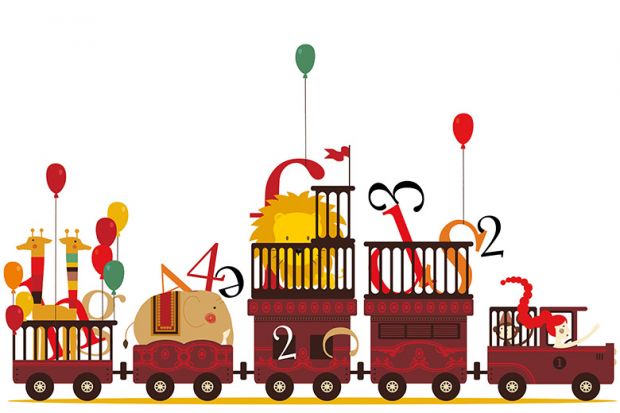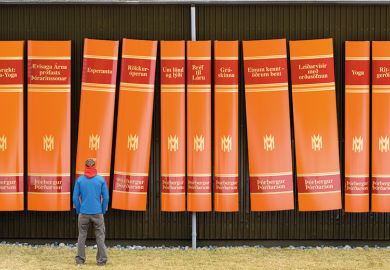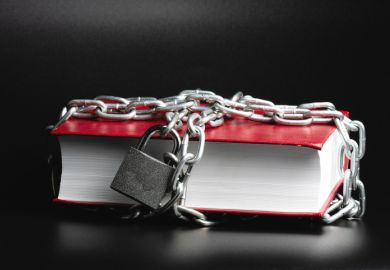The generosity of peer reviewers with their time and expertise is one of the most gratifying things about journal editorship
Whenever I meet a fellow journal editor, I take the opportunity to compare notes. There’s always something to learn about the role, from day-to-day management to long-term strategy. But every so often my blood runs cold when colleagues tell me that they’re still organising everything through their own email accounts.
The Review of English Studies, published since 1925, is a big operation. We carry roughly 40 full-length essays and 100 reviews every year, handled by a four-editor structure established in the 1980s to provide specialist expertise from Beowulf to Virginia Woolf, with one editor also handling book reviews and another the general editorship. It’s an efficient, companionable structure that works very well. About a decade ago, we started using an online submission and peer-review system, and I took over as general editor a year or two later.
Everybody loves to hate information management systems, and we all have our special bête noire. One author cheerfully compares our submission system to those “intelligent nature” videos where a crow pulls matchsticks in sequence from Perspex tubes until a peanut drops out. I spend too much time mopping the tears of frustrated peer reviewers when they’ve lost their work to a crash. But we could no longer manage without the online system. We can stay on top of the workflow wherever we are in the world (my predecessor once processed several submissions from a bunker in a war zone), and we never have to file a thing. The complete history of every submission is all there. When our part of the editorial process is complete, the finalised text moves seamlessly into production.
It’s important, of course, not to be seduced by the time-saving features. The pre-loaded letter templates are gloriously maladroit, and all of them have to be replaced (top tip: in the rejection templates, avoid the word “reject”). They must then be personalised on every outing. After all, who’s going to agree to spend hours, pro bono, on peer review when the invitation email was obviously auto-generated?
In fact, the generosity of peer reviewers with their time and expertise is one of the most gratifying things about journal editorship. Most colleagues recognise that you should referee several pieces for each one you write. And although you often hear objections to peer reviewers’ abuses of power, I’ve rarely come across a referee playing the role of callous or self-interested gatekeeper. When it does occur, it’s an easy thing for editors to spot and fix.
Most peer reviewers are strenuously committed to making scholarship as strong as possible, and to helping juniors advance their careers. More often than not, authors ask me to thank the reviewers for the difference they’ve made, even when we’ve had to recommend resubmission elsewhere.
Of course, editing is tremendously time-consuming, but it is always fulfilling. (Or nearly always; just occasionally someone melts down about a book review.) It’s important work, and there’s no better way to keep abreast of the best new research.
Thomas Keymer is Chancellor Jackman university professor of English at the University of Toronto and general editor of The Review of English Studies.
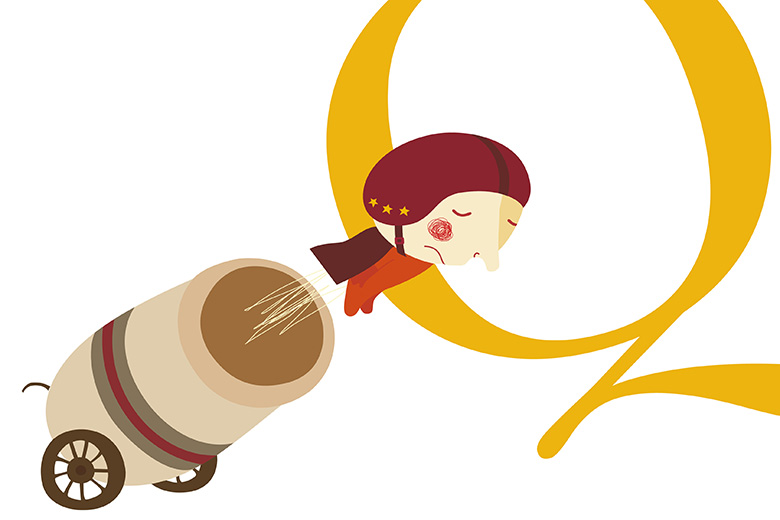
Speeding the process can happen only if more of our fellow scientists are willing to perform peer reviews, and in a timely manner
I did not hesitate when Elsevier offered me the chief editorship of the Journal of Biotechnology, which I took up earlier this year. I had been the associate editor of the journal’s genomics and bioinformatics section for seven years, so I felt like I knew how things worked.
Still, editing is a big job – the journal receives about 1,500 submissions a year. We therefore have a full-time technical editor working on all aspects of the submission process (my wife, Maria), and a roster of close to a dozen associate editors to oversee reviewing. We also work closely with publishing staff at Elsevier. But the journal also requires my own daily attention for a couple of hours: I split it between the early morning and the evening so that it doesn’t interfere with my own research or social life too much (my kids have already left home).
Our rejection rate is quite high: between 75 and 80 per cent. We have to reject many manuscripts without even sending them out for review. Sometimes that is because the topic lacks novelty or is not suitable for our journal. Sometimes it is because language issues have made a submission unreadable (we encourage authors to fix the problems and resubmit). But often it is because the manuscript contains large stretches of work that has already been published. Astonishingly, materials and methods sections are often copied verbatim from other papers. Sometimes people even include complete sections from Wikipedia! Dealing with such plagiarised manuscripts wastes a lot of our time.
The complete review cycle for a submission takes an average of three to four months, with most of that time waiting for external reviewers to send their verdicts. We would like to speed up the process, but this can happen only if more of our fellow scientists are willing to perform peer reviews, and are able to do so in a timely manner. Still, some authors wait only a week before getting in touch to ask us why their review is not finished. This is annoying, and we now respond only to serious issues – otherwise Maria’s and my days would be gone entirely.
Despite the downsides, I would recommend journal editorship to anyone. It is a great honour to be responsible for a publication that has been around for more than three decades and is widely read in my field. Editorship also gives you a privileged vantage point from which to observe how your discipline is evolving. You can even direct that evolution by commissioning special issues, reviews and editorials, highlighting new trends. This is probably the most rewarding part of our work: seeing new fields emerge and capturing them in the scientific record.
Christoph W. Sensen is head of the Institute of Computational Biotechnology at the Graz University of Technology, Austria, and is chief editor of the Journal of Biotechnology.
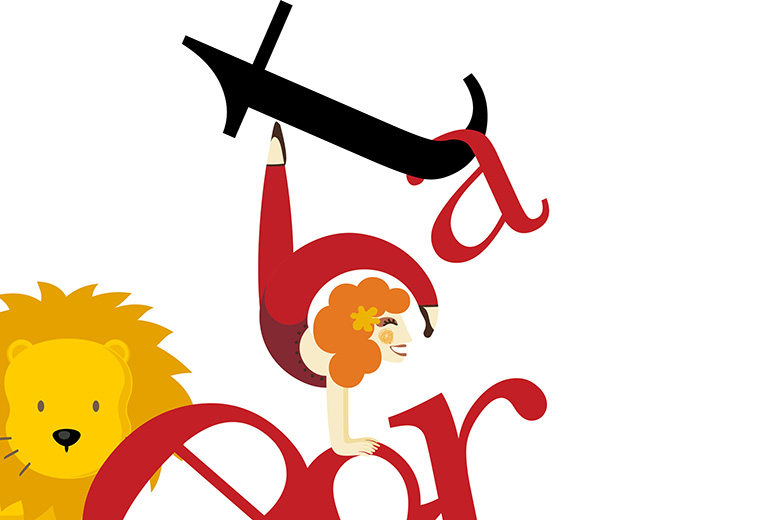
Editing a small journal in a small field means that you know many of the authors who are submitting, making the difficult task of rejection even harder
Editing a journal is one of the most significant contributions scholars can make to their fields, but, unfortunately, this is not always recognised when it comes to appointments, promotions or other academic honours. It is also laborious and relentless. There is always an issue about to come out, as well as one in proof and one being assembled from accepted papers. There are manuscripts to assign, authors to soothe, contradictory reviews to resolve and editors at the publisher to placate when your delivery of proofs lags behind their print schedule (proofing on Christmas Day is one thing I don’t miss). Moreover, you do it for no pay, on top of all your other duties – which usually means at the weekend. It is easily possible to spend more than a day a week on it, and this can seriously impede your own scholarship.
Still, I edited Literary and Linguistic Computing for 14 whole years, from 1996 to 2010, and lived to tell the tale. The journal (now known as Digital Scholarship in the Humanities) was one of the first and most important in digital humanities, and my editorship corresponded with an enormous period of growth in what had previously been a niche subject.
In the early days, the field was so small that finding enough submissions to fill four issues a year could be difficult. Moreover, the field was quite diverse, so there were often only one or two scholars working in a particular sub-area, which made finding reviewers challenging.
The paucity of unsolicited submissions was also an opportunity, however. It allowed me and various assistant and reviews editors to seek out submissions by attending conferences, writing to scholars working on interesting topics and suggesting special sections and special issues on emerging topics. This meant that we could extend our remit into the wider realms of the subject as it grew with the rise of interest in text and image manipulation, hypertext and, most significantly, the internet – and also contribute to that growth by our efforts.
But editing a small journal in a small field means that you inevitably know many of the authors who are submitting, making the difficult task of rejection even harder. I tried (usually) to deliver the bad news in the most encouraging way possible, silently correcting any failures by the reviewers to be polite and constructive. But that did not exempt me from the even more hateful task of dealing with authors who still insisted that the reviewers didn’t know what they were talking about and that their paper was, in fact, the finest scholarship of the decade.
On the whole, I enjoyed the level of engagement and commitment. It was an onerous administrative job, but it still managed to be an exciting and stimulating intellectual challenge, and I am proud of the influence the journal has had.
Marilyn Deegan is professor of digital humanities and honorary research fellow at King’s College London. She was editor of Literary and Linguistic Computing (now known as Digital Scholarship in the Humanities).
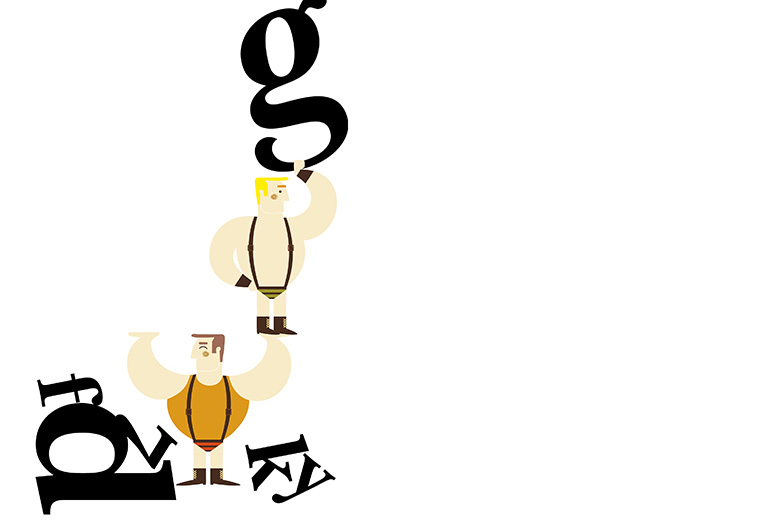
The best reason for taking the role is the opportunity to exercise your idealism: to practise the untaught art of staying above the fray to promote good science
William Bateson had been founding editor-in-chief of the Journal of Genetics for four years when he received Thomas Hunt Morgan’s manuscript describing a first physical mapping of the positions of genes on all the chromosomes of the fruit fly. Bateson had just won a fierce academic battle over whether inheritance was a “digital” or an “analogue” phenomenon: his advocacy of the former paved the path to the acceptance of Mendelian inheritance.
However, used to thinking in abstract schemes of traits and pedigrees, Bateson was not yet ready to embrace the cytologists’ proposal that chromosomes, which they could see under the microscope, could be the carriers of the long postulated “genes”. So he rejected Morgan’s manuscript.
Such power attracts some people into journal editing. Exerting the opportunity to silence your rivals or promote your friends is one potential reward for the many hours the role takes up (far more than could possibly be merited by the prestige of one extra line on your CV). But, apart from the futility of such behaviour – Morgan went on to win the 1933 Nobel Prize in Physiology or Medicine for the chromosomal theory of inheritance – it is simply unethical.
Bateson was a person of such integrity that his verdict likely had no sinister motivation. But, for me, it points towards the best reason to spend up to an afternoon a week reading manuscripts that are often of only modest interest to you, and then finding and chasing reviewers for them. That is the opportunity to exercise your idealism: to practise the untaught art of staying above the fray to promote good science.
Such science is diverse and involves schemes of thought beyond your own epistemic habits. While there is only one truth, there are many paths towards new knowledge, with different levels of attractiveness to different scientists. Moreover, some scientists focus primarily on the elegance of those paths, while others are more impressed by the beauty of the destination.
Lack of imagination about other cultures of thought and alternative standards of evidence addled Bateson’s judgement. And a newly minted editor of the journal Cell Systems once rejected a manuscript from my lab on the ground that none of the algorithms used in the analysis was novel. Obviously, he equated innovation with use of novel approaches, not with new insights.
While the bar for accepting a manuscript must be set high, an equally high bar must be set for rejection in order to give innovation a chance. Not rejecting too quickly is difficult, but it is one of the most rewarding aspects of being a good editor.
Sui Huang is a professor at the Institute for Systems Biology in Seattle. He is on the editorial boards of Plos Biology, BioEssays, the Journal of Theoretical Biology and others.
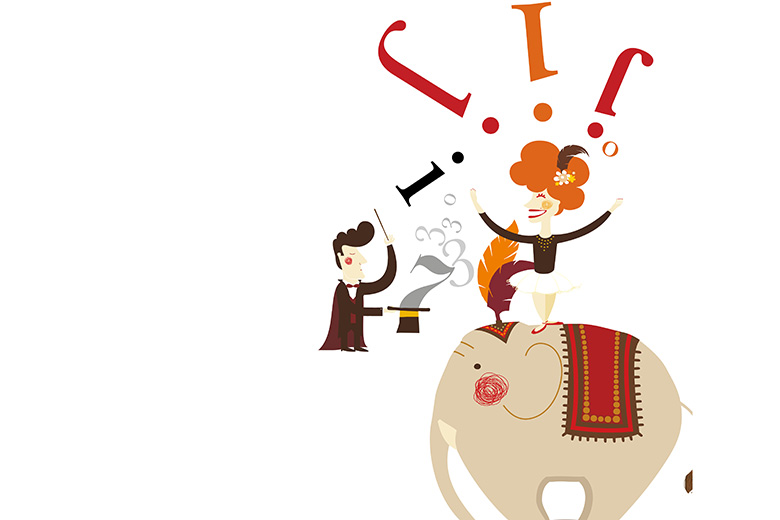
Many researchers never respond to requests to review. Others agree to provide reviews but then ‘forget’, or simply never get around to preparing their comments
About 15 years ago, a well-respected senior colleague approached me during a conference to extend an invitation to become an editor of the Journal of Membrane Science . This is the premier international publication in the membrane field and, at that time, there had been fewer than 10 editors in its 30-year history, so I was truly honoured. It was one of those offers you couldn’t refuse – as was the invitation, five years later, to step up to editor-in-chief.
Being a journal editor definitely has its rewards. I’ve had an opportunity to interact with all the leading researchers in my field, both as authors and as referees. I’ve been able to read about exciting new research results before the data were even published. And I’ve been able to help a large number of young researchers improve their publications, through both my own comments and those of the referees.
But the job also has its challenges. I currently handle the review process for more than 500 papers a year: more than 10 a week. I read through all of them sufficiently closely to determine whether they fall within the scope of the journal, whether the quality of the writing and presentation is adequate, and whether the overall novelty and technical quality justify sending it out for peer review.
In about half the cases, my verdict is negative. While this dramatically speeds the editorial process, it also obliges me to explain my decision to the authors. I always provide at least two or three specific points of concern so that they know what they need to improve in future submissions.
We have a large community, but the competence and commitment of its members is variable when it comes to reviewing. Many never respond to requests, despite multiple reminders. Others agree to provide reviews but then “forget”, or simply never get around to preparing their comments. Some provide reviews with so little detail that they are almost useless. This can be incredibly frustrating, yet it is still my responsibility to ensure that every submission receives fair consideration – trying to blame the referees never goes over well with authors. The key is to stay on top of the process, making sure that extra referees are drafted in quickly whenever needed.
Another big challenge is dealing with plagiarism. This is always messy, but managing each situation properly is a critical part of the job. My best advice is to be fair but firm – you need to listen to what the authors have to say, but you should never back down when the evidence is clear.
I end up doing editorial work at all times of the day and night, both when I am home and when I am travelling: I easily put in 10 or more hours a week. This includes responding to complaints from authors who feel that their papers were handled inappropriately. However, I also get quite a number of compliments.
Being an editor certainly isn’t for everyone. You need discipline, organisation, patience and a thick skin. You also need to command the respect and trust of your professional colleagues – particularly when rejecting papers from a senior researcher. But it is an incredible learning experience, and I am very proud to have contributed so much to the broader membrane community.
Andrew Zydney is distinguished professor of chemical engineering at Pennsylvania State University and editor-in-chief of the Journal of Membrane Science.
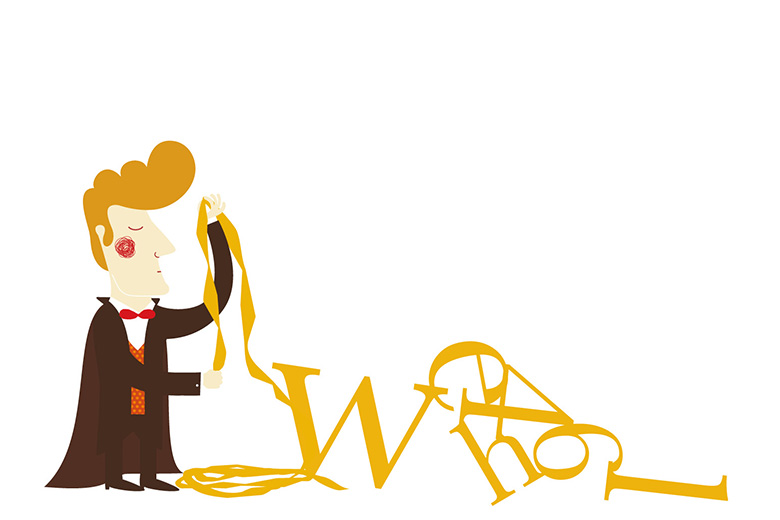
High points? Getting unsolicited praise from authors pleased with how we have handled their work. Low points? Submissions from authors who have never read the journal
I edit Economic Affairs, a subscription journal published by the University of Buckingham and the Institute of Economic Affairs. It began in the 1980s as a mixed bag of academic and shorter journalistic articles, but five years ago, we converted it into a double-blind refereed journal with a clearer focus on academia. It retains a tradition of accessible writing, however, and the IEA link also brings guaranteed financial support and an international network of authors and referees. Not every editor is so fortunate.
I spend at least a day a week on editing. I look through each submission before sending it out to referees, and usually read it in full when I receive their reports. I do elementary editing on most accepted papers, although the copy-editing grunt work is done by my colleague, Michael James, whose attention to detail is beyond praise. I deal with large numbers of emails from authors, many relating to our high-tech submission, permissions and proofing systems. This usually defeats academics, requiring me to mediate between them and our publisher, Wiley.
With my review editor, Juan Castaneda, I try to find people to write our long review essays. I occasionally solicit other articles, often after hearing something interesting from a conference or seminar speaker. But I tread carefully.
I advise strongly against special issues of invited papers, even if you fob them off on to a guest editor. Knowing that they are going to be published without going through a fully blind refereeing process encourages lazy writing by authors, and destroys any ability they might otherwise have to meet deadlines. It may work with the world’s best economists – although perhaps not, as many are notorious prima donnas – but, in general, the increased stress levels are not justified by the mediocre outcome.
We try to offer a verdict within four weeks, and we supply authors with detailed responses that give them something constructive to think about, whether positive or negative. Writing for journals myself, I know that there is nothing more depressing than waiting for four months and then getting a one-line rejection.
The high points of the job? Receiving original, well-written pieces that you know will go down well with readers, and getting unsolicited praise from authors pleased with how we have refereed or edited their work.
The downsides? Submissions from authors who have clearly never read the journal and send us 40 pages of econometrics, with 15 tables and 30 charts, all in the style of a bad PhD draft. Authors who are so up themselves that they won’t let us make the slightest changes to their wonderful copy. And people who don’t respond to requests for full details of their references.
Will peer-reviewed journals survive? I often doubt it. But while they do, editing is a stimulating task and has benefits for both authors and readers that other forms of academic communication may struggle to emulate.
Len Shackleton is professor of economics at the University of Buckingham and editor of Economic Affairs.
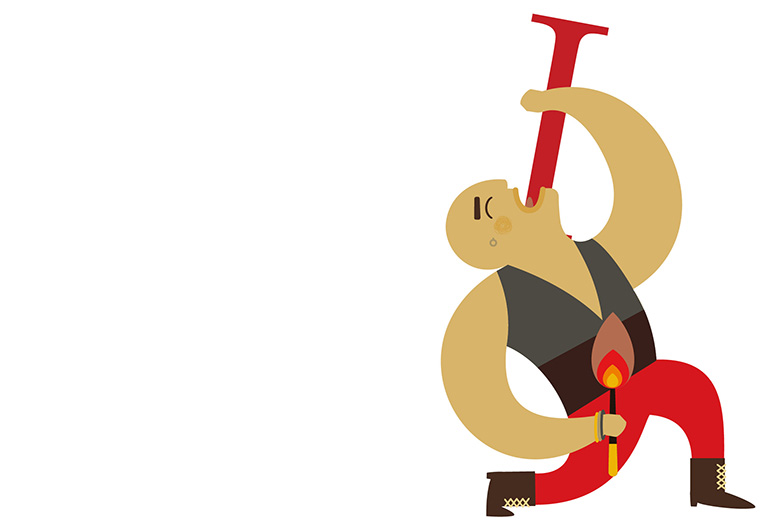
Try to get the time involved factored into your department’s workload formula. And position your work as mentoring and leadership when talking to appraisers and promotions committees
Australian Studies was first published by the British Australian Studies Association in 1988, the year that marked the bicentenary of the white settlement/invasion of Australia. I, as general editor, terminated it in 2015 because the workload involved had become unsustainable.
It had been a real roller-coaster ride. I took up the position in 2011 in the aftermath of the discovery that the association’s former treasurer had run off with most of the money. Fortunately, the previous editor had overseen the journal’s transition from an expensive subscription journal that had to be posted (by surface mail) to Australia into a streamlined open access platform hosted by the National Library of Australia (NLA).
For a few years, I was intensely proud of Australian Studies. It was delivering top-quality research, commentary and discussion completely free, and achieving phenomenal hit rates, not just in Australia and the UK but internationally. But there were challenges. One was the journal’s interdisciplinarity. Although I had brilliantly supportive colleagues – Emma Cox and Tim Causer – working alongside me, the reality was that, as a theatre specialist, I often had no idea who were the leading lights, the prima donnas, the reasonable referees or the hatchet-wielders in areas such as cultural policy, education history and archaeology. Absolutely the worst part of my job was having to beg people to anonymously referee essays for no pay or recognition while having little idea if they were collegiate and constructive or territorial and bullying.
The journal also demanded an inordinate amount of time given the limitations on how the work could be bean-counted by university performance managers. With most issues, my name was attached only to the introduction, yet many essays required a lot of often thankless work (early career writers needed particular mentoring, as did guest editors).
If you are starting out as a journal editor, try to get the time involved factored into your department’s workload formula. Another good piece of advice is to position your role as mentoring and leadership when talking to appraisers, performance managers and promotions committees. As for the journal itself, make sure the finances are sustainable; don’t underestimate how hard it is to get good, prompt referees; and recognise the perils of open access – namely, that someone can easily pull the plug on you.
This is what happened to Australian Studies. Government-driven funding cuts at the NLA meant that it could no longer support any further editions; the existing ones would be archived in a system ominously named Pandora. I explored other options, but ultimately, the thought of being free after general-editing five issues was irresistible. I had a “weight-off-my-shoulders” experience that was extraordinarily, and physically, intense. And I felt free to do my own research again, after years of playing midwife to that of others.
Liz Schafer is professor of drama and theatre studies at Royal Holloway, University of London. She was editor of Australian Studies.
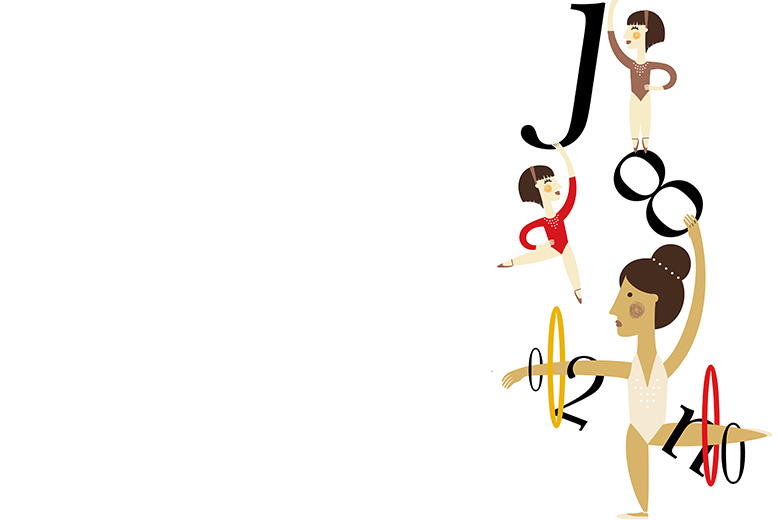
The most important thing is to ensure that the review system is as efficient and honest as possible. Reviewers are the weak link
Of course there are downsides to getting involved with journal editing. It will always take more time than you imagine. For every great paper that breathes new life into your academic world, there are 10 that make you sigh with despair. And you don’t receive any pay for your troubles – or even any time in lieu.
Still, there are many more reasons to do it. For a start, someone has to. Moreover, we all want to see a fair system in which the best research is published, unacceptable research refused and gaming called out. The best way to ensure that is to get involved.
Editors enjoy the excitement of seeing new research before it is published, and of shaping their disciplines via their decisions, both on which special issues to commission and on which manuscripts to accept (experimental design is the single most important factor you look at – all other things can be fixed).
Reading lots of projects also sharpens your sense of what constitutes both good experimental work and good scientific writing. This can improve your own practice. Try to copy-edit at least one manuscript a month and you will notice the difference in your own writing.
Being on an editorial board is also good for the CV. It is acknowledgement of your expertise and leadership within a subject, which has a knock-on effect for both promotion and grant applications. But the role comes with responsibility. Don’t be a titular editor with a low work rate.
The most important thing is to ensure that the review system is as efficient and honest as possible. Reviewers are the weak link: they can be slow, poor and even unethical. One-line reviews are worse than no review. So are rude, offensive or biased ones. A good referee’s report should, in two to six pages, summarise the manuscript’s contribution to knowledge, set out its strengths and weaknesses and end with a publication recommendation, detailing any required substantive corrections in full. Don’t be afraid to reject a review if it fails on any of these scores.
It can be tempting to take the path of least resistance and opt for the authors’ suggested reviewers, but there may be conscious or unconscious bias in their selections. Web of Science and Google Scholar can help you find impartial referees in the right area with good publication records and appropriate affiliations.
Other dishonest practices by authors include plagiarism, salami-slicing and gift author-ship. Give them the benefit of the doubt, but don’t ignore infractions – and always refer to the Committee on Publication Ethics’ code of conduct. Sticking to it will also help defuse any subsequent complaints.
Mike Smith is database manager at the Royal Geographical Society and editor-in-chief of the Journal of Maps.
POSTSCRIPT:
Print headline: Ringmaster, juggler and tightrope walker
Register to continue
Why register?
- Registration is free and only takes a moment
- Once registered, you can read 3 articles a month
- Sign up for our newsletter
Subscribe
Or subscribe for unlimited access to:
- Unlimited access to news, views, insights & reviews
- Digital editions
- Digital access to THE’s university and college rankings analysis
Already registered or a current subscriber? Login
